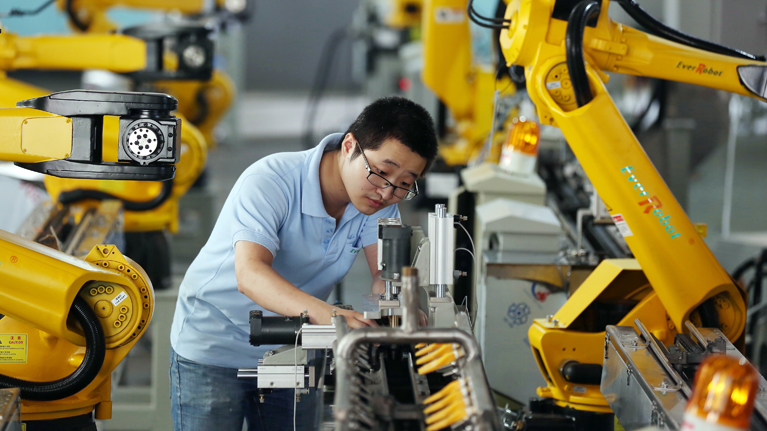ILO launches landmark report of the Global Commission on the Future of Work
A Universal Labour Guarantee, social protection from birth to old age and an entitlement to lifelong learning are among ten recommendations made in a landmark report by the ILO’s Global Commission on the Future of Work.

Co-chaired by South African President Cyril Ramaphosa and Swedish Prime Minister, Stefan Löfven, the commission outlines a vision for a human-centred agenda that is based on investing in people’s capabilities, institutions of work and in decent and sustainable work.
Among the ten recommendations are:
- A universal labour guarantee that protects fundamental workers’ rights, an adequate living wage, limits on hours of work and safe and healthy workplaces.
- Guaranteed social protection from birth to old age that supports people’s needs over the life cycle.
- A universal entitlement to lifelong learning that enables people to skill, reskill and upskill.
- Managing technological change to boost decent work, including an international governance system for digital labour platforms.
- Greater investments in the care, green and rural economies.
- A transformative and measurable agenda for gender equality.
- Reshaping business incentives to encourage long-term investments.
“Countless opportunities lie ahead to improve the quality of working lives, expand choice, close the gender gap, reverse the damages wreaked by global inequality. Yet none of this will happen by itself. Without decisive action we will be sleepwalking into a world that widens existing inequalities and uncertainties,” the report stresses.
It outlines the challenges caused by new technology, climate change and demography and calls for a collective global response to the disruptions they are causing in the world of work.
Artificial intelligence, automation and robotics will lead to job losses, as skills become obsolete. However, these same technological advances, along with the greening of economies will also create millions of jobs – if new opportunities are seized.
The report is the culmination of a 15-month examination by the 27-member commission, which is made up of leading figures from business and labour, think tanks, academia, government and non-governmental organizations.
“The ILO Global Commission Report on the Future of Work is a vital contribution to global understanding of the changes occurring – and that will continue to unfold – in the world of work,” said Ramaphosa. “The report should stimulate engagement and partnerships within and between national and regional jurisdictions to ensure that the global economy and global society becomes more equitable, just and inclusive. At the same it should inspire global action to contain or eliminate challenges that humanity has inflicted on itself in the course of history.”
Löfven, for his part said: “The world of work is undergoing great changes. They create many opportunities for more and better jobs. But governments, trade unions and employers need to work together, to make economies and labour markets more inclusive. Such a social dialogue can help make globalization work for everyone.”
The report also highlights the ‘unique role’ the ILO should play in the development and delivery of the ‘human-centred economic agenda’ in the international system and calls on the organization to give urgent attention to the implementation of the report’s recommendations.
‘The issues highlighted in this report matter to people everywhere and to the planet,’ commented ILO Director-General Guy Ryder. ‘They may be challenging but we ignore them at our peril. The ILO’s mandate, bringing together governments, employers and workers from all parts of the world, means the organization is well suited to act as a compass and a guide in order to help open up new vistas for coming generations at work.’